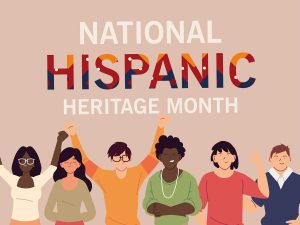
In anticipation of Hispanic Heritage Month, UCF History Professor Luis Martinez-Fernandez spoke with Abby Hornacek of FOX News to discuss the significance and cultural relevancy of this month.
“What is the history of Hispanic Heritage Month and when was it started?” asks Hornacek. “Well, we have to go back to the 1960s, which was a peak in the civil rights movement in the United States. It all began in 1967-68, when a congressman from California, George Brown, introduced a bill in Congress to celebrate what was then just Hispanic Heritage week…” says Martinez-Fernandez. “President Johnson signed it into law in 1968, and then in 1987-88, another bill came up for transforming what had been a Hispanic Heritage Week into a whole-month celebration. Ronald Reagan signed that into law in 1988.”
About why September 15-October 15 were the dates selected for this month, Martinez-Fernandez explains that four of the smallest countries in Latin America became independent on September 15, 1821.
Martinez-Fernandez emphasizes the importance of celebrating the rich culture of Latin America, rather than a reduction of just food and music. “Well, sure, have the Mexican buffet, but make sure that you also have a poet, a writer, a painter…” he says.
“That is one of my objectives… to present Latin America, its culture, the culture of Latinos… in all of its diversity. Few people fully understand all of the various cultures that are involved. Hispanic is cultural. It’s not a race. I think we should explore that rich diversity.”